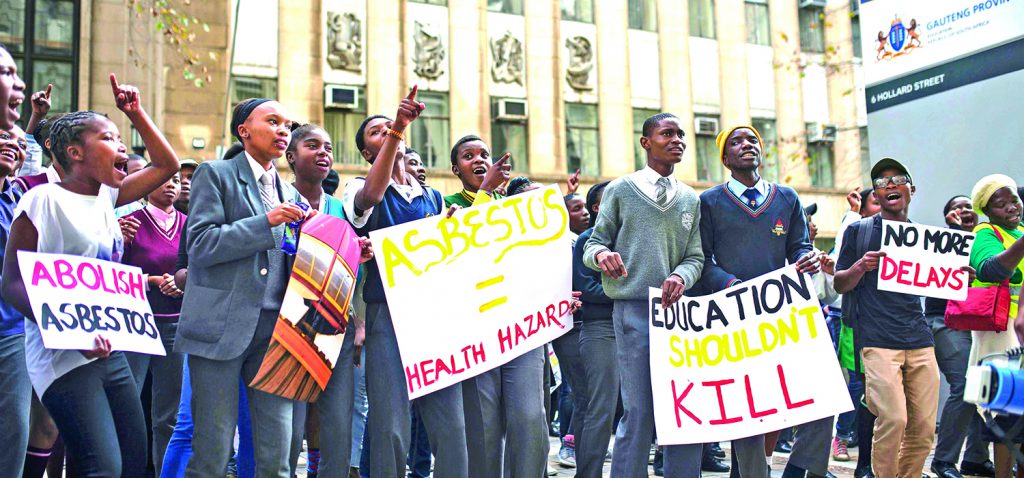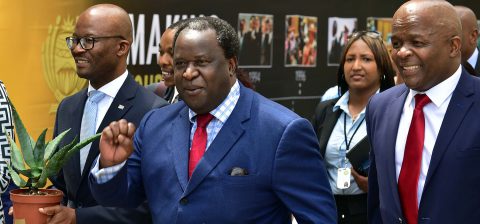Business Day Human Rights Day
A Tale Of Two Education Systems
Former President Thabo Mbeki was often quoted talking about the two nations that live in South Africa: “One of these nations is white, relatively prosperous and all members of this nation have the possibility to exercise their right to equal opportunity.
“The second and larger nation of South Africa is black and poor and it has virtually no possibility to exercise what in reality amounts to a theoretical right to equal opportunity”.
Nowhere is this clearer than in South Africa’s education system where learners who go to well-resourced schools, and their parents, are almost oblivious of the conditions confronting no-fee schools, which is where the majority of black and poor learners go.
Equal Education general secretary, Noncedo Madubedube says inequalities in South Africa’s education system have been difficult to address despite the fact that in 2013, the Norms and Standards for School Infrastructure that regulates the basic level of infrastructure that every public school must meet in order to function properly, was promulgated.
She attributes this to a lack of political will and capable provincial and national leadership, adding: “Well-resourced public schools that charge school fees often do not have to contend with the difficult conditions confronting no-fee state-subsidised schools where factors such as the lack of access to desks, textbooks, quality teaching tools and teachers, is the norm.
“At no-fee schools, teaching and learning takes place in circumstances where school buildings are unsafe and on the brink of collapse, where teachers and learners are forced to make use of unsafe and undignified sanitation facilities, and where young children have to travel, often hundreds of kilometres — through rain and scorching heat – to get to school.
“This impacts on their chances of staying in the education system and successfully completing matric, which in turn continues the cycle of poverty and unemployability.”
CHANGE IS NEEDED
The minister of Finance, Tito Mboweni announced in his 2019 Budget Speech that spending on education would be increased significantly.
“Over R30-billion is allocated to build new schools and maintain schooling infrastructure. An additional R2,8-billion is added to the School Infrastructure Backlogs grant to replace pit latrines at over 2 400 schools,” Mboweni said.
Is this enough to turn the tide of our unequal education system?
Historian and education activist, Nomalanga Mkhize, believes that the education system will only really become more equal when there is renewed focus on “producing quality teachers and restructuring teacher training at universities”.
CHALLENGES FACED AT TERTIARY INSTITUTIONS
The #FeesMustFall protests that started in 2015 exposed the challenges faced by poor black students. They simply cannot afford the fees and access to affordable accommodation or student housing is another stumbling block, says South African Union of Students’ spokesperson, Thabo Shingange. “The struggle against fee increases is part of a much bigger struggle against an unequal system,” says Shingange.
“There’s a huge number of students who could not register for this new academic year because of historical debt, and many graduates remain unemployed because they cannot produce their degrees to prospective employers because they haven’t settled their fee accounts. In addition the National Student Financial Aid Scheme’s delayed payments also affect poor students.”






 Sign-up and receive the Business Media MAGS newsletter OR SA Mining newsletter straight to your inbox.
Sign-up and receive the Business Media MAGS newsletter OR SA Mining newsletter straight to your inbox.